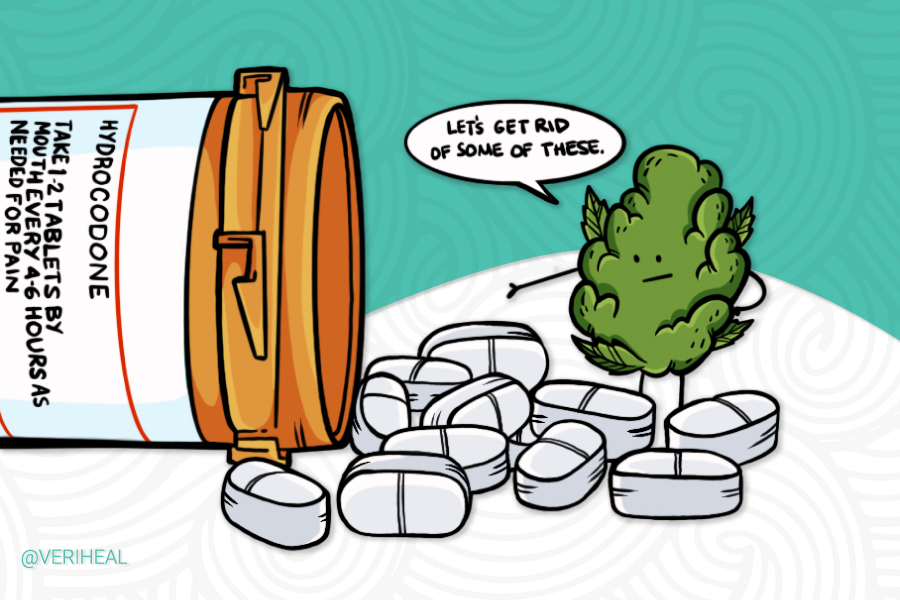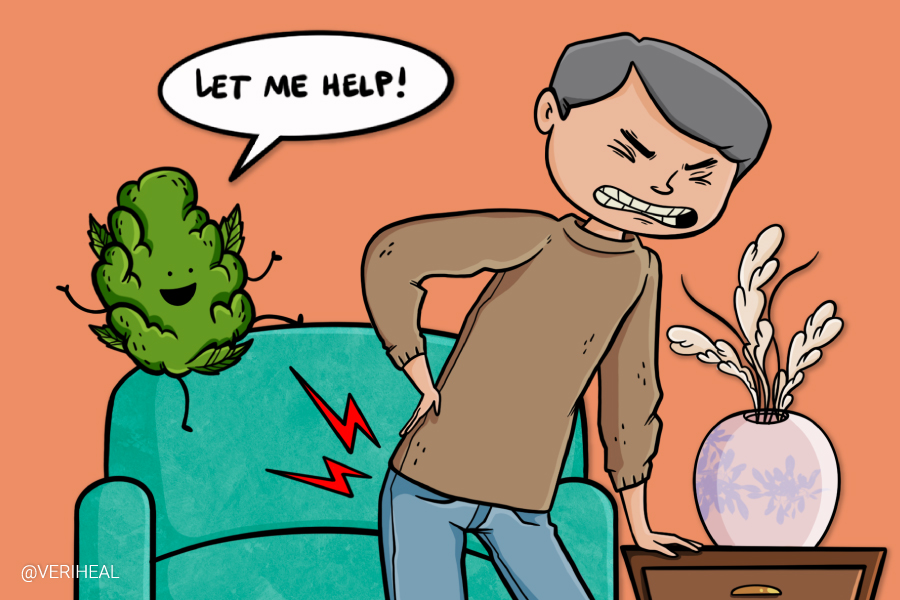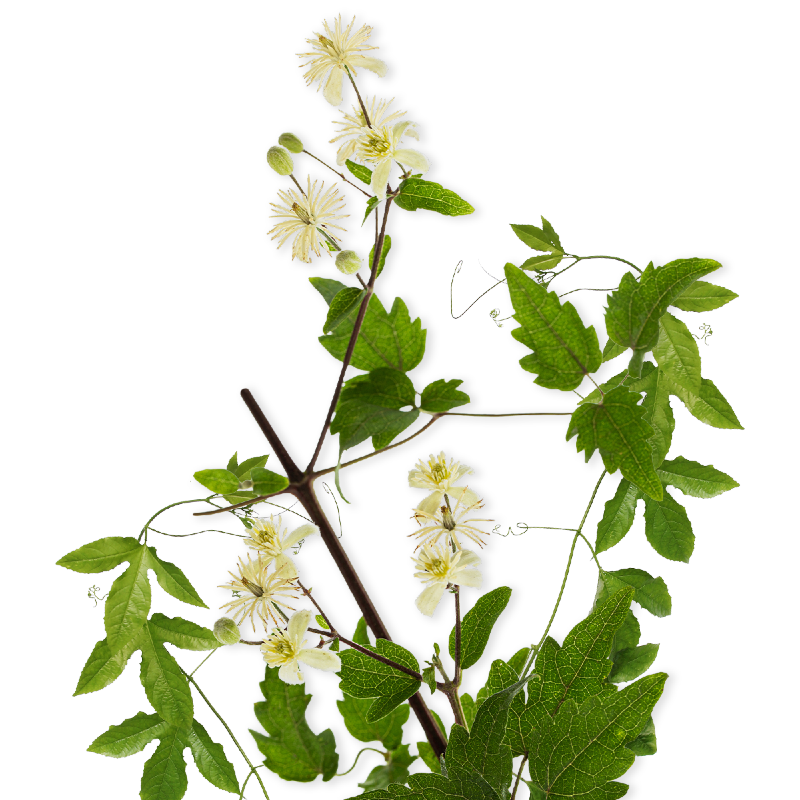Can Marijuana Potentially Improve Inflammation Symptoms?

What You Need To Know: Medical Cannabis For Inflammation
Cannabis, particularly its compounds THC (tetrahydrocannabinol) and CBD (cannabidiol), has been studied for its potential anti-inflammatory properties. Inflammation is a natural response by the immune system to injury or infection, but chronic inflammation can contribute to various health issues. Research suggests that cannabinoids in cannabis may interact with the endocannabinoid system (ECS) in the body, influencing immune responses and inflammation.
CBD, in particular, has gained attention for its potential anti-inflammatory effects without the psychoactive properties associated with THC. Studies have indicated that CBD may modulate the immune system, reducing inflammation and oxidative stress. Some preclinical and animal studies also suggest that cannabis compounds may have therapeutic potential for conditions with inflammatory components, such as rheumatoid arthritis and inflammatory bowel disease.
However, it’s essential to note that while some research is promising, the field is still evolving, and more extensive clinical studies are needed to fully understand the efficacy, safety, and optimal dosages for using cannabis in treating inflammation. Additionally, individual responses to cannabis can vary. Overall, while preliminary evidence suggests that cannabis may have anti-inflammatory properties, further research is crucial to establish its role as a mainstream therapeutic option for inflammation-related conditions.
The Science Behind Medical Cannabis For Inflammation:
- How Cannabis Targets Inflammation
- Treating Inflammation with THC
- Should You Try CBD for Inflammation?
- What Causes Chronic Inflammation?
- Inflammation and Cannabis: What Do Medical Cannabis Patients Say?
There are several conditions in which patients have pain due to inflammation in various parts of the body. Thankfully, using medical cannabis, many patients can experience some relief in lieu of using nonsteroidal anti-inflammatory drugs (NSAIDs), steroids, and opioids that all can have separate long-term and well-known severe side effects. Cannabis use is not devoid of risk, but the reported short-term adverse effects are generally mild and temporary, while the long-term effects are still being studied (14).
Cannabis works to activate or deactivate neurotransmitters that assist in regulating pain, inflammation and more in the body through the endocannabinoid system (ECS). Endocannabinoids are fat-based neurotransmitters that are made in the body. They can be activated by the cannabinoids (chemical compounds) in marijuana, including Δ9-tetrahydrocannabinol (THC) (the main psychoactive component) and cannabinol (CBD) through a variety of receptors.
The main cannabinoid receptors are the CB1 and CB2 receptors. The majority of CB1 receptors are in the central nervous system, while CB2 receptors can be found in immune cells. These can also be found in the synovial fluid that surrounds joints (7). To some degree, certain cannabinoids can also bind with opioid, adenosine, serotonin, and dopamine receptor families that may support medicinal benefits and other health effects. New research shows CB receptors can bond with similar receptors to produce effects as well (14).
Check out our endocannabinoid guide to learn more about the ECS and our chronic pain page for more information about how medical marijuana use reduces pain, including pain that is caused by inflammation.
How Cannabis Targets Inflammation
Thanks to the endocannabinoid system, medical marijuana targets inflammation through the following mechanisms:
- Cannabinoids including THC and CBD trigger immunosuppression by triggering apoptosis, or the natural process of cell death (8). It can cause apoptosis in immune cells, such as T-lymphocytes and macrophages, thus reducing the body’s natural producers of chronic inflammation.
- THC attacks inflammation by reducing immune signaling proteins created by cells called cytokines of the immune system. When cytokines are disrupted, white blood cell reproduction and the immune responses are slowed; thus, inflammation responses in and around the cells are also slowed down. Basically, THC decreases inflammation symptoms and inhibits the cause of inflammation while the body is attacking itself and causing inflammation (8).
It is important to note that the anti-inflammatory effects of cannabis work through a variety of immune symptom responses related to the ECS. As to how marijuana helps on a cellular level, it depends on the type of inflammation that you are experiencing and where it occurs in the body.
New research indicates there are other complicated pathways by which cannabinoids may reduce inflammation. Clinical evidence has shown that CBD has an antioxidant effect in the body and is able to target free radicals that can cause inflammation (13). In addition, CBD has been shown to help reduce inflammation in inflammatory conditions such as inflammatory bowel diseases, Parkinson’s disease, and Alzheimer’s disease. It has also shown an ability to help with inflammatory skin issues including psoriasis and atopic dermatitis (15).
Preliminary research in diabetic rats shows promising results for utilizing CBD for inflammation. CBD typically targets CB2 receptors and through this mechanism, it is able to increase vasodilation, which has helped decrease diabetic neuropathy in rats. In addition, CBD has been shown to help accelerate wound healing in these diabetic rats as well (13).
There is also research that suggests that inflammation in the body could potentially be responsible for over 20% of human cancers. Inflammation can cause cancer, and cancer itself can cause inflammation, creating a vicious cycle. Thankfully CBD has the potential to slow cancer tumor growth and promote anti-inflammatory responses in the body to help the body fight cancer (15).
Our understanding of marijuana and inflammation is promising but is also just starting out. We need more research to understand all of the mechanisms, therapeutic possibilities, and long-term health effects of medical marijuana on inflammation.
Treating Inflammation with THC
THC activates both the CB1 and CB2 receptors on both immune cells and non-immune cells, which allows it to regulate pain perception and immune responses. This allows for activation of the endocannabinoid system in order to decrease inflammation in the body (6).
Scientists believe that when cannabis is used, THC, CBD and other cannabinoids found in the plant work together to reduce inflammation in the body. The terpenes, or flavor profiles, also enhance medicinal properties, which is why some cannabis strains work better to target inflammation than others. This is called the entourage effect as explained by Dr. Ethan Russo (11). Check out our article on the entourage effect for more specifics.
Should You Try CBD for Inflammation?
For patients who are worried about feeling impaired from marijuana, CBD only products such as CBD oil are a viable option. CBD is not intoxicating, counteracts some of the effects from THC and regulates pain perception and inflammation (6).
If you are experiencing other symptoms that go along with having a chronic condition such as anxiety or insomnia, CBD may be able to help these conditions as well (6). Check out our CBD guide for more information.
It is important to understand that not all types of persistent inflammation are caused by the same mechanisms in the body. We recommend looking for qualified cannabis recommendations for your specific condition as delivery methods and doses for each condition vary. However, cannabinoids are not yet clinically proven treatments for inflammatory conditions on a large scale.
Is Inflammation Bad?
Not all inflammation is bad for you. As a matter of fact, acute inflammation regularly occurs in your body. Acute inflammation’s telltale signs include swelling, redness, pain, and warmth (4). The body uses the immune system to fight off sickness and heal injuries; the problem occurs when this inflammation is long-lasting and becomes chronic. The problem with chronic inflammation is that the body sends white blood cells to attack the inflammatory targets, and they may start damaging healthy tissue, leading to more inflammation (10).
What Causes Chronic Inflammation?
Chronic inflammation can be caused by (12):
- The body’s inability to remove infectious organisms such as bacteria, protozoa, and fungi that resist the body’s immune defenses.
- Exposure to irritants that the body can’t eliminate such as industrial chemicals or particulates like silica dust.
- Autoimmune diseases and immune system disorders where the body thinks certain cells are foreign, and therefore, attacks itself.
- Recurring episodes of acute inflammation.
- Inflammatory and biochemical inducers that cause oxidative stress and cell dysfunction, such as gout.
Chronic inflammation causes diseases and conditions such as:
- Diabetes
- Heart disease
- Arthritis
- Chronic obstructive pulmonary disease (COPD)
- Autoimmune diseases
- Chronic pain
- Multiple Sclerosis (MS)
Inflammation and Medical Cannabis: What Do Medical Cannabis Patients Say?
A 2020 study looked at inflammation biomarkers and self-reported cannabis use among adults. The study found that among patients who reported marijuana use in the last 30 days, these patients had lower levels of inflammation biomarkers. The biomarkers that this study looked at were high-sensitivity C-reactive Protein (hsCRP), Interleukin 6 (IL-6) and fibrinogen (9). Although the findings are lower, they are technically not statistically significant. This study affirms that patients who use cannabis for inflammation are experiencing biological effects from doing so and that further study into treating inflammation with cannabis is warranted.
Cannabis advocate, public speaker, and brand marketer Shayda Torabi is the CEO of Restart CBD. Shayda shared some insight into customers’ questions about CBD and inflammation as well as her own use of CBD for pain:
“We see lots of consumers come through our shop looking for inflammation relief with cannabis. While we’re not medical professionals, the research that is out there shows lots of promise for cannabis and specifically CBD as a cannabinoid that has a lot of anti-inflammatory properties by affecting activity in the body’s endocannabinoid receptors. And anecdotally there is a lot of sentiment around how helpful cannabis has been in the reduction of inflammation. Personally speaking, I was in a bad car accident over 5 years ago and still experience chronic pain, but after getting introduced to cannabis, and after developing a consistent routine, I’ve found relief in managing my own inflammation and it really comes down to understanding how much per dose and how frequently your body needs cannabis.”
If you’re interested in learning more or have questions about the medical use of cannabis, feel free to make an appointment with a cannabis coach or a medical marijuana doctor on Veriheal’s platform.
Note: Veriheal does not intend to give this as professional medical advice. Do not attempt to self-diagnose, or prescribe treatment based on the information provided on this page. Always consult a physician before making any decision on the treatment of a medical condition.
1. Biles, M. (2020, April 03). CBD as a Steroid Sparing Treatment. Retrieved January 31, 2021, from https://www.projectcbd.org/medicine/cbd-steroid-sparing-treatment
2. Gonen, T., & Amital, H. (2020). Cannabis and Cannabinoids in the Treatment of Rheumatic Diseases. Rambam Maimonides medical journal, 11(1), e0007. https://www.rmmj.org.il/issues/44/articles/1025
3. Hendricks, O., Andersen, T. E., Christiansen, A. A., Primdahl, J., Hauge, E. M., Ellingsen, T., Horsted, T. I., Bachmann, A. G., Loft, A. G., Bojesen, A. B., Østergaard, M., Lund Hetland, M., Krogh, N. S., Roessler, K. K., & Petersen, K. H. (2019). Efficacy and safety of cannabidiol followed by an open label add-on of tetrahydrocannabinol for the treatment of chronic pain in patients with rheumatoid arthritis or ankylosing spondylitis: protocol for a multicentre, randomised, placebo-controlled study. BMJ open, 9(6), e028197. https://bmjopen.bmj.com/content/9/6/e028197
4. InformedHealth.org [Internet]. Cologne, Germany: Institute for Quality and Efficiency in Health Care (IQWiG); 2006-. What is an inflammation? 2010 Nov 23 [Updated 2018 Feb 22]. Available from: https://www.ncbi.nlm.nih.gov/books/NBK279298/
5. Katz-Talmor, D., Katz, I., Porat-Katz, BS. et al. Cannabinoids for the treatment of rheumatic diseases — where do we stand?. Nat Rev Rheumatol 14, 488–498 (2018). https://www.nature.com/articles/s41584-018-0025-5
6. Medical Cannabis & Arthritis. (2019). Retrieved January 31, 2021, from https://arthritis.ca/AS/courses/medical-cannabis-arthritis/content/index.html#/lessons/aG2-dk4r8fT37HeH_2nVeL7GwJRRQ6Jx
7. Miller, R. J., PhD, & Miller, R. E., PhD. (2017, October 9). Is Cannabis an Effective Treatment for Joint Pain? [PDF]. Chicago: Clinical and Experimental Rheumatology.
8. Nagarkatti, P., Pandey, R., Rieder, S. A., Hegde, V. L., & Nagarkatti, M. (2009). Cannabinoids as novel anti-inflammatory drugs. Future medicinal chemistry, 1(7), 1333–1349. https://www.ncbi.nlm.nih.gov/pmc/articles/PMC2828614/
9. Okafor, C. N., Li, M., & Paltzer, J. (2020). Self-reported cannabis use and biomarkers of inflammation among adults in the United States. Brain, Behavior, & Immunity – Health, 7, 100-109.https://www.sciencedirect.com/science/article/pii/S2666354620300740
10. Publishing, H. (2020, April). Understanding acute and chronic inflammation. Retrieved February 01, 2021, from https://www.health.harvard.edu/staying-healthy/understanding-acute-and-chronic-inflammation
11. Russo, E. B. (2011). Taming THC: Potential cannabis synergy and phytocannabinoid‐terpenoid entourage effects. British Journal of Pharmacology. https://bpspubs.onlinelibrary.wiley.com/doi/full/10.1111/j.1476-5381.2011.01238.x
12. Pahwa R, Goyal A, Bansal P, et al. Chronic Inflammation. [Updated 2020 Nov 20]. In: StatPearls [Internet]. Treasure Island (FL): StatPearls Publishing; 2020 Jan-. Available from: https://www.ncbi.nlm.nih.gov/books/NBK493173/
13. Atalay, S., Jarocka-Karpowicz, I., & Skrzydlewska, E. (2019). Antioxidative and anti-inflammatory properties of cannabidiol. Antioxidants, 9(1), 21. https://www.mdpi.com/2076-3921/9/1/21/htm
14. Iffland, K., & Grotenhermen, F. (2017). An update on safety and side effects of Cannabidiol: A review of clinical data and relevant animal studies. Cannabis and Cannabinoid Research, 2(1), 139-154. https://www.liebertpub.com/doi/10.1089/can.2016.0034
15. Pellati, F., Borgonetti, V., Brighenti, V., Biagi, M., Benvenuti, S., & Corsi, L. (2018). Cannabis sativa L. and Nonpsychoactive Cannabinoids: Their Chemistry and Role against Oxidative Stress, Inflammation, and Cancer. BioMed research international, 2018, 1691428. https://www.ncbi.nlm.nih.gov/pmc/articles/PMC6304621/








